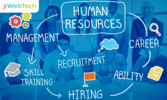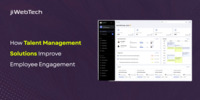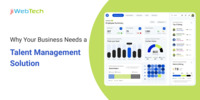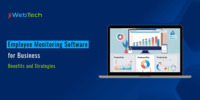- Aug 13, 2024
- Talent Management
- 2589
Share this post on:
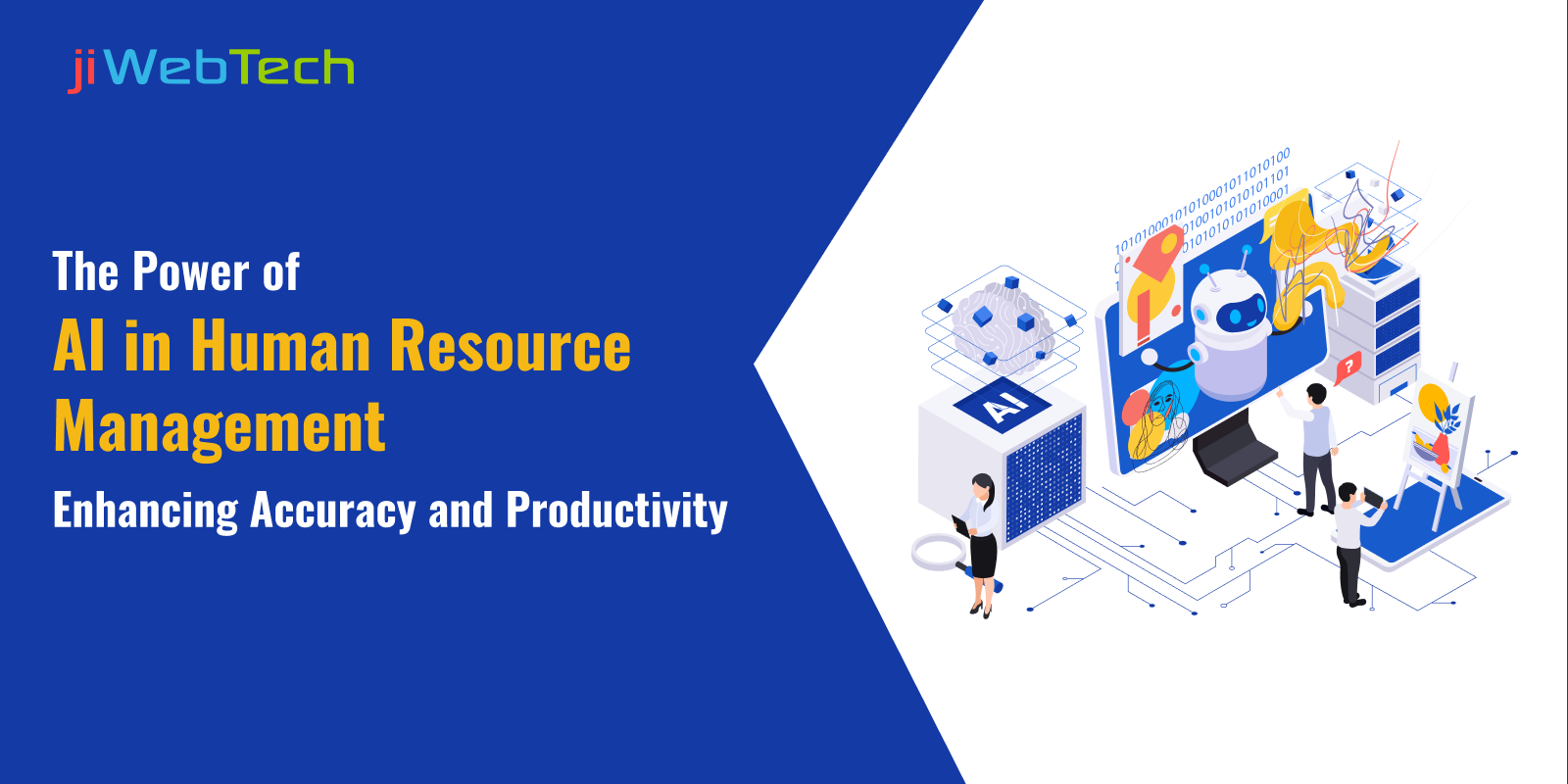
The integration of artificial intelligence (AI) into human resources (HR) is revolutionizing the way organizations manage their workforce. By enhancing efficiency and productivity, AI is not only streamlining HR processes but also enabling HR professionals to focus on strategic initiatives that drive organizational success. This blog explores the various dimensions of AI in HR, highlighting its benefits, applications, and potential challenges.
Understanding the Role of AI in HR
AI technologies encompass a range of tools and applications that can analyze data, automate processes, and provide insights. In HR, these technologies are being employed to enhance various functions, including recruitment, onboarding, performance management, and employee engagement. The primary goal is to reduce the administrative burden on HR teams, allowing them to dedicate more time to strategic decision-making and employee development.
Benefits of AI in HR
1. Increased Efficiency:
One of the most significant advantages of AI in HR is the automation of repetitive tasks. Activities such as data entry, scheduling interviews, and generating reports can be streamlined through AI-powered tools, freeing up HR personnel to focus on more complex and valuable tasks. This shift not only enhances productivity but also improves job satisfaction among HR professionals.
2. Improved Recruitment Processes:
AI can significantly enhance the recruitment process by automating candidate sourcing and screening. AI algorithms can analyze resumes and match candidates to job descriptions more accurately and quickly than human recruiters. This reduces the time spent on shortlisting candidates and helps eliminate biases in the hiring process. For instance, AI can assess candidates based on skills and qualifications rather than demographic factors, promoting a more inclusive hiring approach.
3. Enhanced Onboarding Experiences:
Automating the onboarding process ensures that new hires have a seamless transition into the organization. AI can manage paperwork, schedule training sessions, and provide new employees with essential information about company policies and culture. This not only improves the onboarding experience but also reduces the time HR teams spend on administrative tasks.
4. Data-Driven Decision Making:
AI tools can analyze vast amounts of employee data to provide insights that inform HR strategies. This includes metrics on employee performance, engagement levels, and turnover rates. By leveraging these insights, HR professionals can make informed decisions that enhance workforce management and improve employee satisfaction.
5. Personalized Employee Engagement:
AI can facilitate personalized communication with employees, enhancing engagement levels. Chatbots and virtual assistants can address employee queries in real-time, providing instant support for issues related to payroll, benefits, and company policies. This availability improves employee satisfaction and reduces the workload on HR teams.
Applications of AI in HR
The applications of AI in HR are vast and varied, with several key areas benefiting from its implementation:
Recruitment and Talent Acquisition
AI is transforming recruitment by automating candidate sourcing, screening, and assessment. Tools can analyze job descriptions and match them with candidate profiles across various platforms, reducing the time taken to find suitable candidates. Additionally, AI can assist in conducting initial interviews through chatbots, allowing HR teams to focus on final interviews with top candidates.
Performance Management
AI can streamline the performance management process by automating the creation of review forms and collecting feedback from multiple sources. This not only saves time but also ensures consistency in evaluations. Furthermore, AI can assist in setting performance goals and tracking progress, enabling managers to provide timely feedback and support.
Learning and Development
AI can identify skill gaps within the workforce and recommend personalized training programs for employees. By analyzing employee performance data, AI can suggest targeted learning paths that align with both individual career aspirations and organizational needs. This proactive approach to employee development enhances overall productivity and job satisfaction.
Employee Retention
Predictive analytics powered by AI can help HR teams identify factors contributing to employee turnover. By analyzing patterns in employee behavior and engagement, organizations can implement strategies to improve retention rates. This may include targeted interventions for at-risk employees or initiatives to enhance workplace culture and employee satisfaction.
Challenges and Considerations
While the benefits of AI in HR are substantial, organizations must also be mindful of potential challenges:
1. Data Privacy and Security
The use of AI in HR involves handling sensitive employee data. Organizations must ensure that they comply with data protection regulations and maintain the confidentiality of employee information. Implementing robust security measures is essential to protect against data breaches.
2. Integration with Existing Systems
Many organizations face challenges when integrating AI tools with their existing HR systems. Ensuring compatibility and seamless data transfer between different platforms is crucial for maximizing the benefits of AI technology.
3. Change Management
The introduction of AI in HR may require a cultural shift within the organization. HR teams must be equipped with the necessary skills to leverage AI tools effectively. Providing training and support during the transition is essential to ensuring that employees embrace the new technology.
4. Ethical Considerations
The use of AI in HR raises ethical questions regarding bias and fairness. Organizations must be vigilant in monitoring AI algorithms to ensure they do not perpetuate existing biases in hiring or performance evaluations. Regular audits and adjustments may be necessary to maintain ethical standards in AI applications.
The Future of AI in HR
As AI technology continues to evolve, its impact on HR will only grow. Organizations that embrace AI will likely gain a competitive advantage by enhancing their HR processes and improving employee experiences. The future of HR will involve a collaborative approach, where AI serves as a tool that complements human expertise rather than replacing it. HR professionals will need to adapt to the changing landscape by developing new skills and competencies. This may include becoming proficient in data analysis, understanding AI technologies, and fostering a culture of continuous learning and improvement within their organizations.
Conclusion
The power of AI in HR is undeniable, offering numerous benefits that enhance efficiency and productivity. By automating routine tasks, improving recruitment processes, and providing data-driven insights, AI is transforming the HR landscape. However, organizations must also navigate the challenges associated with AI implementation, ensuring that they prioritize data privacy, ethical considerations, and employee engagement. As businesses continue to evolve in the digital age, leveraging AI in HR will be crucial for success. jiWebTech is at the forefront of this transformation, providing innovative solutions that help organizations harness the full potential of AI in their HR practices. By embracing AI, organizations can create a more efficient, productive, and engaged workforce, ultimately driving their success in a competitive marketplace. Contact today.





